Our Timeline
Our technology is built on years of in-house research that spans decades. Our core team of world leading scientists have an international reputation in creating, developing and validating next-generation approaches to kidney, liver, heart, lung, spleen and limb perfusion.
This track-record includes world-first discoveries that have changed clinical practice in the NHS and beyond. However, this is only the beginning – we are committed to the continuous improvement of our LIVING-ORGAN research platforms to support the research community in accelerating the safe translation of novel therapies to the clinic, while working on our own pipeline of medical devices and therapies.
ThePlus Addons
First visit to Igelosa to meet Prof. Stig Steen, a pioneer of ex-vivo lung perfusion (EVLP). This leads to a new way of thinking and a shift of focus towards organ perfusion.
ThePlus Addons
ThePlus Addons
ThePlus Addons
We demonstrate that in humans, EVLP mobilises the donor immune compartment & can be used to remove donor leukocytes before lung transplantation.
ThePlus Addons
We publish the first multicentre clinical trial in collaboration with Igelosa, & Skane Hospital, Sweden, demonstrating that EVLP of marginal donor lungs does not lead to adverse outcomes following lung transplantation.
ThePlus Addons
We develop a new hypothesis that EVLP removes donor leukocytes (that contribute to rejection). We perform a complex evaluation & publish a seminal paper demonstrating that EVLP alters the donor immune environment, improving clinical outcome after transplant.
ThePlus Addons
We develop a ‘ground-up’ build of a donor kidney perfusion system, with a focus on physiological perfusion (replicating the in-vivo environment). We then publish our first kidney paper, demonstrating that our kidney protocol mobilises the donor immune compartment in the kidney, which will reduce reperfusion injury post-transplant.
ThePlus Addons
Given the role of donor leukocytes in rejection, we then designed & tested a new donor-kidney flush protocol. In this study, we demonstrated that flushing the renal vasculature immediately prior to transplant removed billions of donor leukocytes, many of which play a pathological role in rejection.
ThePlus Addons
The team focus on designing and testing a new approach to limb perfusion, again focusing on recapitulating the in-vivo environment. We publish our first limb paper reporting our vascular flush protocol that should be used to prepare the limb before transplant.
ThePlus Addons
Working with Prof Steen, we evaluate a novel device that can increase safe preservation of the donor heart from 4 hours to 24 hours. We publish a paper in Frontiers of Immunology, demonstrating that this device & protocol significantly immunodeplete the donor heart (removes donor leukocytes) & reduces graft infiltration after transplant.
ThePlus Addons
The team evaluate how perfusion alters cell signalling, & complete a comprehensive proteomic analysis of a wide range of genes. In this study, we demonstrate that perfusion drives mitochondrial salvage & activates cell survival pathways.
ThePlus Addons
Given the success of the flush protocols in the limb & kidney, we then develop a modified donor lung protocol to reduce inflammatory burden & improve early graft function via immediate flushing of the pulmonary vessels prior to lung transplant.
ThePlus Addons
In our previous work we identified changes to several immune & gene related parameters. We recognised unique processes in organs that did not recover during perfusion. We then evaluated if molecules associated with non-recovery could be used as a prognostic indicator during perfusion.
ThePlus Addons
Back to the limb, we completed a randomised preclinical trial to define the optimal parameters for limb perfusion. This world-first data highlighted the importance of physiology during perfusion.
ThePlus Addons
Pebble is founded & officially opens its new laboratory in July, at Alderley Park. We run our first experiments a week after getting the keys.
ThePlus Addons
Back to the science, we assess if our limb NMP protocol has ancillary benefits by removing donor leukocytes that contribute to rejection. We publish a paper demonstrating that our protocol can be used to remove billions of donor cells.
ThePlus Addons
The team have been developing a new kidney perfusion system. In September we perform our first successful 24-hour physiological kidney perfusion, where all biochemical processes are stable throughout, & the kidney has no injury. This could be a stepwise change to kidney transplantation, electivising transplant & ensuring all potential kidneys can be transplanted.
ThePlus Addons
We publish a preclinical study demonstrating that the addition of a kidney on a limb limb perfusion circuit improves preservation by preventing acidosis & reducing inflammatory burden.
ThePlus Addons
In August, we relocate to a larger facility at Alderley Park, doubling the bandwidth of the lab. Our LIVING-ORGAN systems are upgraded to use state of the art FDA/EMEA approved critical care equipment.
ThePlus Addons
We launch the LIVING-ORGAN systems, offering access to a variety of organs, including kidney, liver & limb.
ThePlus Addons
Pebble reach a huge milestone, performing our 1,000th perfusion experiment!
ThePlus Addons
In August 2023, we make the move to a new lab location, based in the heart of the Cheshire countryside - The Pebble Farm!
ThePlus Addons
In 2023, Pebble make huge advancements towards becoming the new industry standard, with FDA data packs & stock market announcements.
ThePlus Addons
In March 2024, we launch the The Drug Evaluation Hub, a service that provides preclinical assessment tools to streamline drug development processes.
ThePlus Addons
Big things are happening at Pebble in 2024, as we prepare to complete the first in-human kidney preservation in September 2024 using the Pebble-Kidney System.

